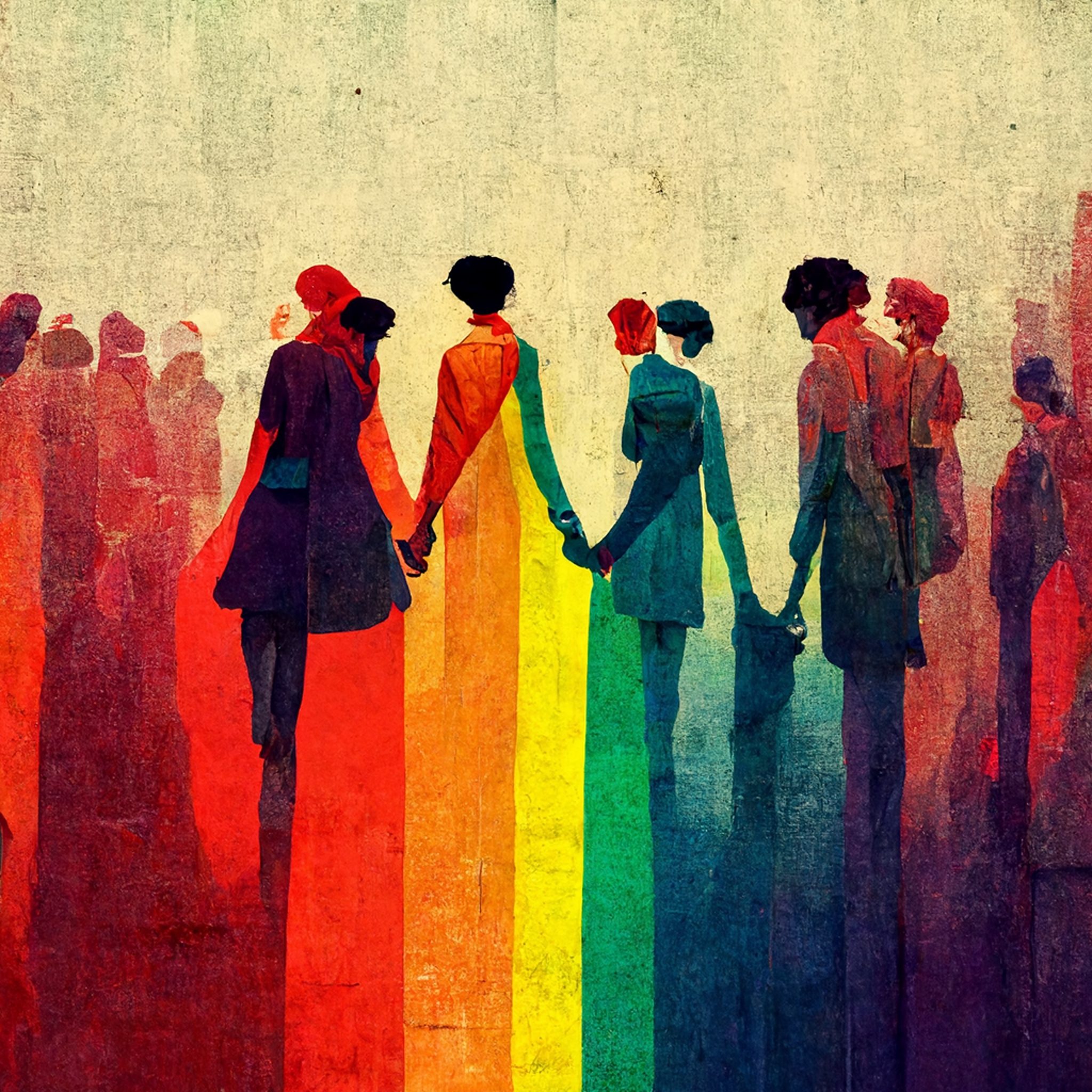
Pride Month is an extremely happy time for me. Centring on and celebrating different queer stories, queer experiences and queer joy for a whole month (where more people than usual seem onboard) feels like a real privilege. I lived most of my life in a country that, on the whole, does not celebrate Pride (although we now do have an annual Pride march!) and does very little to protect and support its queer community. So for me, being able to feel safe and free – and celebrated – as a queer person in London is a huge privilege and one that I don’t take lightly.
Pride month can veer into a more complicated arena
However, there are times when my feelings about Pride Month veer into a more complicated arena. At times, I have felt that celebrating Pride is viewed as the ‘trendy’ thing to do: people are happy to get onboard – for the month – and then it’s back to the default. This ‘support and celebration’ for Pride month can feel like a tokenistic, box-ticking exercise, rather than an authentic and truly committed level of support for the LGBTQIA+ community.
So, as much as I love Pride Month (and the visual and tangible support that is on display), personally, as a queer person what I am more interested in is the longevity of this energy. I want continued conversation, support, validation and demonstration of including queer feelings and experiences in the larger narrative that goes beyond the month. The activities of Pride Month do an amazing job centring queer stories,and experiences – 30 days just isn’t enough.
A dedication to inclusion
It is the dedication to inclusion that is important. This enables those who have historically been excluded to be central to stories, and not just for one month of the year. At Sonnet, our work not only enables this centring and inclusion, but actively encourages these stories to be told. It is built into the foundation of our work. So far, in my short time working at Sonnet, inclusion has been at the core of the work we prioritise and therefore, the stories we tell. Sonnet intentionally tries to highlight as many intersectional stories as we can, particularly the stories of those who may not typically be included in conversations and who traditionally may have had to fight to be heard.
The viewpoint is vital
This viewpoint is vital – and not just to the success of projects and the outcomes we are helping other organisations to achieve. This viewpoint influences how proud I feel showing up to work with a team that prioritises this approach. An inclusive environment matters to me. Every day, in every project, we take purposeful decisions as a team to centre inclusion. In doing so, we grow in how we understand, and include, a diversity of stories. We grow in understanding how to better include those stories that aren’t always prioritised or heard.
Stories hold power
The fact that Sonnet prioritises stories as evidence within our analysis and evaluation helps other organisations understand this is a powerful and meaningful tool.
Giving power to those who have long deserved to be heard isn’t just a month-long exercise: it is something that we need to strive for all the time.
Amplifying inclusion – and making it not an add on to how one thinks but a fundamental criterion – is a lifetime exercise that can always be updated and improved. I think that to continue to be inclusive in a genuine way, you have to keep talking to different people, reading about different experiences, educating yourself and challenging your own assumptions and world-views.
So with Pride Month drawing to an end, I hope that everyone will think about how they can continue to support, through a variety of means, the LGBTQIA+ community, even when the majority of Pride logos may be boxed away until next June.
Catherine Cooke, Executive






